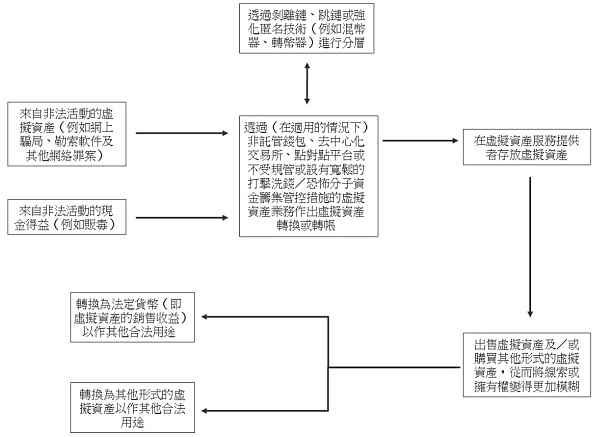Forbes: Will the IRS Kill Cryptocurrency Trading
Business media Forbes wrote on Monday an analysis of how the IRS's crypto policy will affect the cryptocurrency world.

The article states that the IRS declared cryptocurrencies as assets in 2014, and after five years, it stated that cryptocurrencies from hard forks are subject to tax. There are currently no official tax guidelines for cryptocurrency transactions, and it is well known that section 1031 of the tax code currently only applies to real estate. Regarding the situation before 2017, Suzanne Sinno, an attorney in the IRS Counsel's Office, said that Article 1031 of the tax code does not apply to cryptocurrencies.
Sinno was involved in the preparation of a new cryptocurrency guide recently released by the IRS, but this is not an official statement or an "authoritative" interpretation of federal income tax purposes. Another IRS official also recently withdrew previous comments, saying it would depend on the situation.
- Monthly Report | Blockchain policy released in November, supervision and support
- Supervision clearly "open the door to block the evil door" ideas "chain Shanghai South" into a digital asset test field
- Switzerland will make extensive amendments to blockchain regulations
The IRS did not fully deny whether Article 1031 of the tax code applies to cryptocurrencies, which may mean that the IRS may postpone the review, especially considering the huge differences in how taxpayers treat and report their cryptocurrency transactions.
Article 1031 of the tax law stipulates that there is no profit or loss for trading or holding similar assets for investment purposes. But it does not apply to "stocks, bonds, notes or other securities, debt or interest certificates." This means that it is necessary to determine whether two types of assets are "similar." The IRS sometimes uses narrow interpretations when analyzing transactions in real assets. For example, in tax ruling No. 79-143, IRS ruled that coins and gold and silver coins are not "similar" property, because in addition to the gold content, coins can also be valued according to the year and product, while gold and silver coins are valued based on the price of gold.
Similarly, gold and silver bars used for investment are not "identical" assets, because gold and silver are different metals and are used in different ways (gold for investment and silver as industrial commodity). So the IRS may think that, like gold and silver bars, cryptocurrencies are subject to different market forces and use different investments in different ways.
However, IRS declared all digital currencies as assets in 2014, which seems to indicate that they are similar in nature. The IRS had previously concluded that the taxpayer's replacement of the FCC radio license with the FCC TV license was a "similar asset" transaction as described in Article 1031 of the tax code. For different cryptocurrencies, it can be said that there are more similarities than differences.
But there is another point of contention. The IRS may consider cryptocurrencies to be "secure" and not eligible for "similar transactions". Because cryptocurrencies can be traded on exchanges like stocks and bonds.
In the 1960s and 1970s, the IRS made a preliminary decision as to whether Whiskey Warehouse Receipts (WWRs) should be considered securities mentioned in Section 1031 of the Tax Code. WWR represents inventory of whiskey, which is considered a security by the Securities and Exchange Commission, but the IRS does not treat WWR as a security mentioned in section 1031 of the tax code.
Nonetheless, the ultimate problem may still need to be resolved in court. The IRS Appeals Office is where many tax disputes eventually settle. The IRS order is also not absolute and will ultimately be decided by the court.
Image source: Pixabay
Author Xiu MU
This article comes from bitpush.news. Please reprint the source.
We will continue to update Blocking; if you have any questions or suggestions, please contact us!
Was this article helpful?
93 out of 132 found this helpful
Related articles
- US Treasury: FB Libra Coin needs to meet the highest standards of anti-money anti-terrorism
- SEC Chairman: The future of the Bitcoin ETF "has a long way to go"
- Looking at the 2nd Anniversary of September 4th from the August Policy: Central Ministries Promote the Development of Digital Currency, Guangdong Lulu Promotes Blockchain Application
- Former US Congressman: The encryption industry is the next source of economic innovation in the United States
- The Brazilian Internal Revenue Service requires citizens to report all cryptocurrency transactions, and unreported people will face fines
- Libra has not yet launched a large number of fake web pages, and Swiss regulators require Libra to provide more information.
- IRS: will give priority to issuing cryptocurrency tax guidance






